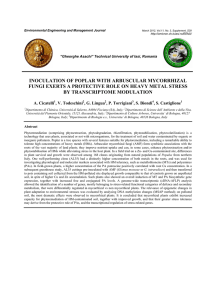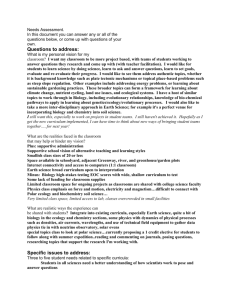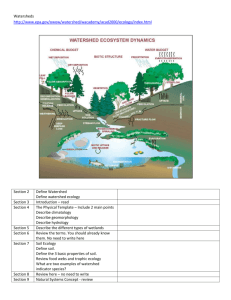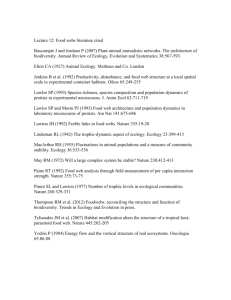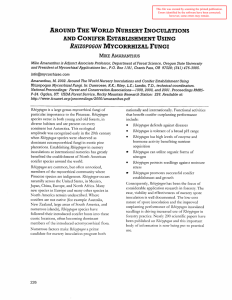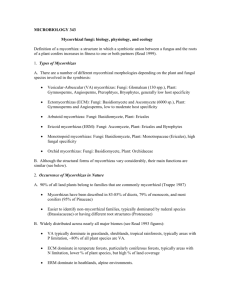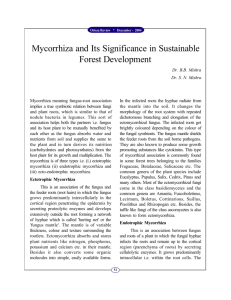IGERT Faculty Expertise List
advertisement
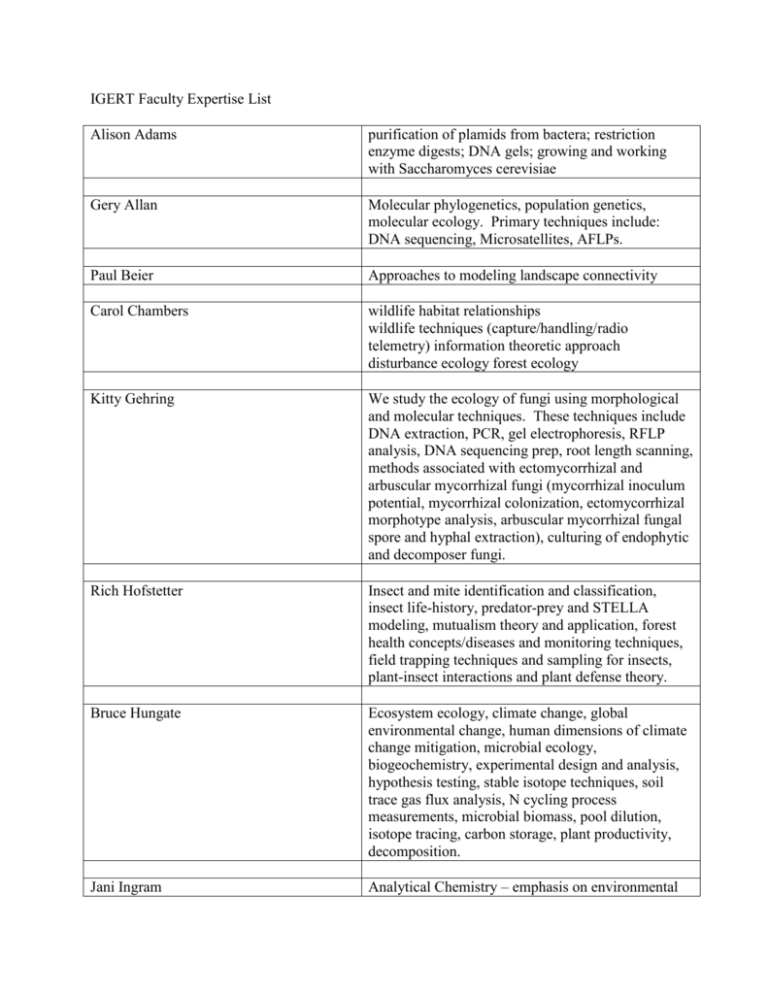
IGERT Faculty Expertise List Alison Adams purification of plamids from bactera; restriction enzyme digests; DNA gels; growing and working with Saccharomyces cerevisiae Gery Allan Molecular phylogenetics, population genetics, molecular ecology. Primary techniques include: DNA sequencing, Microsatellites, AFLPs. Paul Beier Approaches to modeling landscape connectivity Carol Chambers wildlife habitat relationships wildlife techniques (capture/handling/radio telemetry) information theoretic approach disturbance ecology forest ecology Kitty Gehring We study the ecology of fungi using morphological and molecular techniques. These techniques include DNA extraction, PCR, gel electrophoresis, RFLP analysis, DNA sequencing prep, root length scanning, methods associated with ectomycorrhizal and arbuscular mycorrhizal fungi (mycorrhizal inoculum potential, mycorrhizal colonization, ectomycorrhizal morphotype analysis, arbuscular mycorrhizal fungal spore and hyphal extraction), culturing of endophytic and decomposer fungi. Rich Hofstetter Insect and mite identification and classification, insect life-history, predator-prey and STELLA modeling, mutualism theory and application, forest health concepts/diseases and monitoring techniques, field trapping techniques and sampling for insects, plant-insect interactions and plant defense theory. Bruce Hungate Ecosystem ecology, climate change, global environmental change, human dimensions of climate change mitigation, microbial ecology, biogeochemistry, experimental design and analysis, hypothesis testing, stable isotope techniques, soil trace gas flux analysis, N cycling process measurements, microbial biomass, pool dilution, isotope tracing, carbon storage, plant productivity, decomposition. Jani Ingram Analytical Chemistry – emphasis on environmental systems. Trace metal analysis by atomic spectroscopy (ICP, ICP/MS, AA), molecular spectroscopy (FTIR), separations (GC, GC/MS), surface spectroscopy. Nancy Collins Johnson Soil ecology with a specialty in mycorrhizas. Design of field and greenhouse experiments. Analysis of arbuscular mycorrhizal colonization of roots, spore communities and hyphal densities of arbuscular mycorrhizal fungi. George Koch Plant gas exchange and water relations; photosynthesis, transpiration, water potential, psychrometry, Dendrochronology ,Stable isotopes in ecology Tom Kolb measurement of plant water stress, water use, photosynthesis, respiration, transpiration, soil water content, light intensity, carbon isotope discrimination, water sources, individual plant and ecosystem-level production, root growth, soil respiration, plant reproduction, herbivory, tree rings, plant age, fire damage, micrometeorological characteristics (wind speed, direction, humidity, etc...), common garden experimental design and evaluation Catherine Propper Impact of environmental contaminants on vertebrate development, reproduction and behavior. Techniques: Enzyme-linked immunosorbant assays, Immunohistochemistry, Western Blot, real time quantitative PCR, bioassays for behavior and developmental impacts, general other endocrinerelated techniques. Egbert Schwartz Characterizing microbial communities, Quantifying gene abundance in environmental samples, Culturing organisms from soil, The use of stable isotopes in environmental microbiology. Techniques: TRFLP Realtime quantitative PCR Clone library analysis DNA/RNA extraction from soil Stable Isotope Probing Culturing microorganisms from soil Tad Theimer Vertebrate ecology and behavior with limited expertise in genetic structuring of populations using MtDNA and microsatellites Kristen Waring Tree ring analysis (cross-dating and growth) with WinDendro; basic tree measurements (height, diameter, crowns, etc) Maribeth Watwood DNA extraction from soil, water. Gene amplification, terminal restriction fragment length polymorphism analysis. Culture techniques for environmental microorganisms. Tom Whitham common garden design, discussions of potential sharing of our existing gardens to explore issues students are interested in, discussions of potential inplanting of other species into our current gardens, community and ecosystem genetics conceptual issues relevant to student projects.
